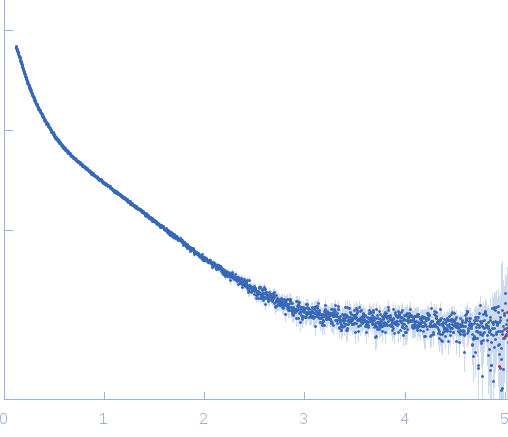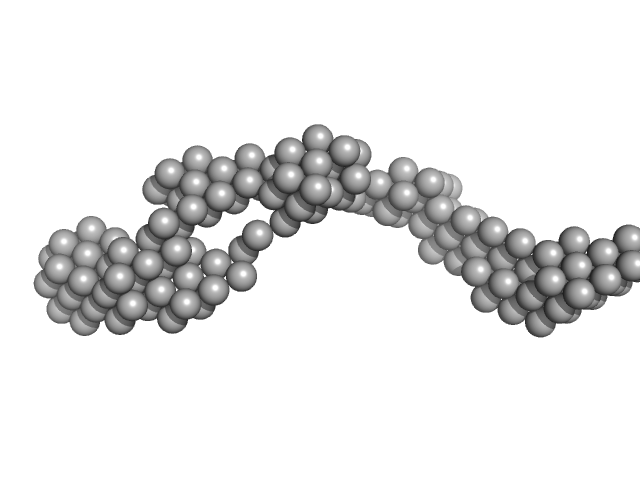|
Synchrotron SAXS data from solutions of Mammalian prion protein mRNA (PrP mRNA wild type) in 10 mM Tris buffer with 100 mM KCl and 1 mM PDS, pH 7.5 were collected on the EMBL-P12 beam line at the PETRA III storage ring (DESY, Hamburg, Germany) using a Pilatus 2M detector at a sample-detector distance of 3.1 m and at a wavelength of λ = 0.124 nm (l(s) vs s, where s = 4πsinθ/λ, and 2θ is the scattering angle). Solute concentrations ranging between 0.5 and 4 mg/ml were measured at 20°C. 20 successive 0.050 second frames were collected. The data were normalized to the intensity of the transmitted beam and radially averaged; the scattering of the solvent-blank was subtracted. The low angle data collected at lower concentration were merged with the highest concentration high angle data to yield the final composite scattering curve.
|
|
 s, nm-1
s, nm-1
